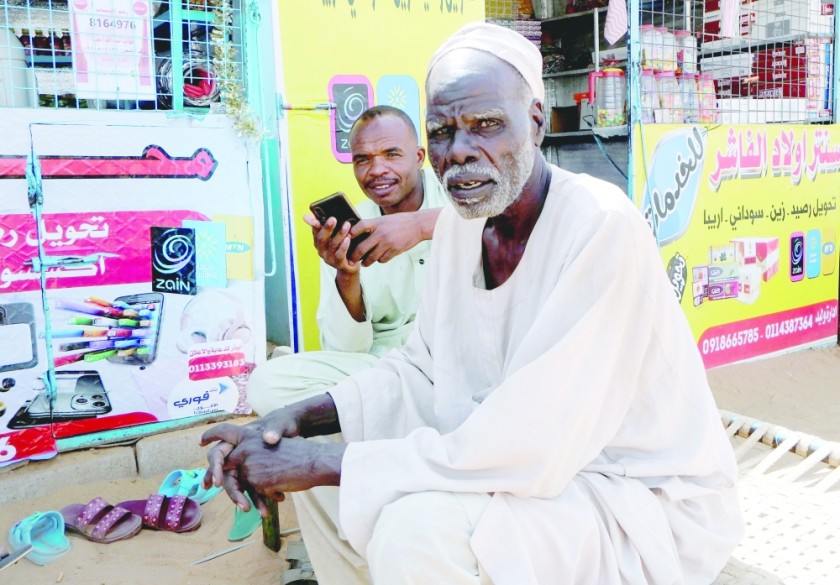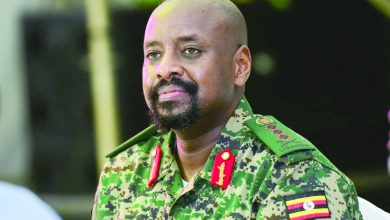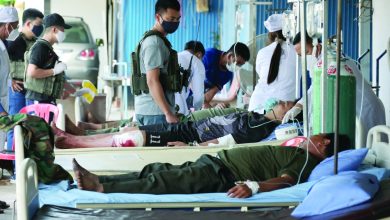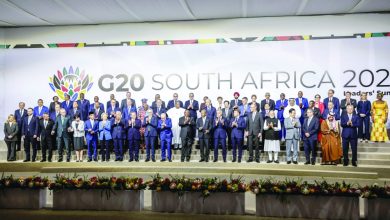No end to Sudan fighting despite RSF paramilitaries backing truce plan
PORT SUDAN: An end to fighting in Sudan still seems far off despite the paramilitary Rapid Support Forces, fighting the army for more than two years, endorsing a truce proposal.
The government, backed by the army, has yet to respond to US-led international mediators and explosions rocked the army-controlled capital Khartoum on Friday.
Experts express doubt about whether the RSF is truly ready to implement a truce, and warn it is in fact preparing an offensive to capture city of El Obeid in the south.
But the conflict may nevertheless be at a turning point.
Fighting has raged since April 2023, pitting the forces of army chief Abdel Fattah al Burhan against those of his former deputy, RSF commander Mohammed Hamdan Daglo.
The Sudanese army, meanwhile, has received support from Egypt, Saudi Arabia, Türkiye and Iran, according to observers.
Now, the United States, Saudi Arabia, the UAE and Egypt are backing a proposed ceasefire.
Here is what we know after two years and almost seven months of a war that has killed tens of thousands, displaced nearly 12 million and triggered a hunger crisis:
Less than two weeks ago the RSF captured El Fasher, the army’s last major stronghold in western Darfur.
The takeover was accompanied by reports of mass killings, violence and looting, triggering international condemnation.
There are now fears of further atrocities as the conflict shifts east towards Khartoum and the oil-rich Kordofan region.
Under international pressure, the RSF now says it is ready to consider a ceasefire, but the army has not responded and observers are unconvinced.
“Its only intent is to distract from the atrocities it is currently committing in El Fasher and position itself as more responsible than the army”, Cameron Hudson of the Washington-based Centre for Strategic and International Studies said.

Shaikh Mayor Abdullah Mohamed Khatir sits at the arrival station for displaced people from El Fasher, in Al Dabbah, Sudan. — Reuters
The army, he said, is now “focused on retaking all of Kordofan and then proceeding on to El Fasher”.
El Fasher’s fall has given the paramilitaries control over all five state capitals in Darfur and parts of the south while the army now dominates northern, eastern and central areas along the Nile and Red Sea.
“The RSF, now that they control all of Darfur, has an incentive to try to bring food and assistance into areas under their control, but the army has an incentive to not allow the RSF to consolidate its gains”, Hudson said.
No details of the ceasefire proposal have been made public, but a senior Saudi official said that it calls for a “three-month truce”, during which both sides would be encouraged to hold talks in Jeddah on a permanent peace deal.
On Friday, one day after RSF responded positively to the ceasefire idea, explosions were heard in Khartoum and in Atbara, an army-held city around 300 kilometres north of Khartoum, according to witnesses.
Khartoum has seen relative calm since the regular army regained control this year, but the RSF continues to mount attacks in several regions.
A resident in Omdurman, part of the greater Khartoum area, said on condition of anonymity out of fear of reprisal, he was awoken “around 2 am by the sound of … explosions near the Wadi Sayidna military base”. — AFP



